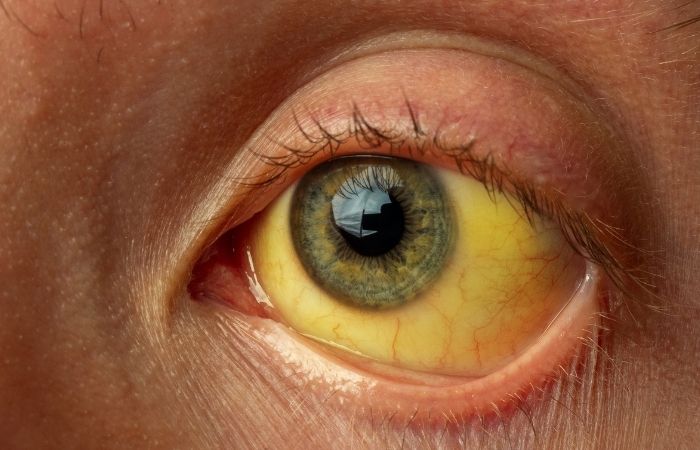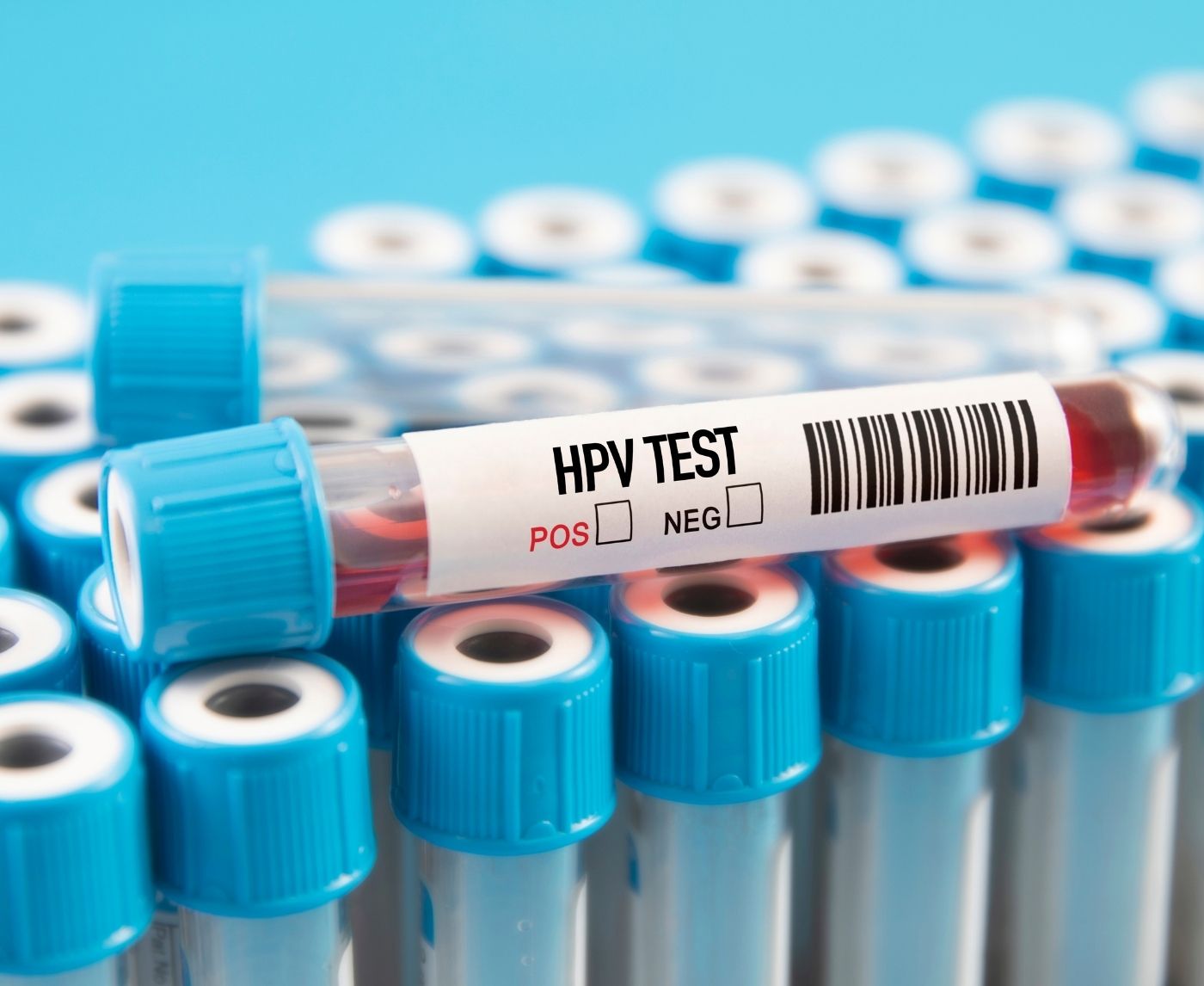Are HPV Home Tests Accurate? What You Need to Know First
Quick Answer: Hepatitis B during pregnancy can be managed safely with medical care. Most babies can be protected at birth through timely vaccination and a single shot of hepatitis B immune globulin (HBIG). Early action matters.
Why This Matters to More People Than You Think
There’s a quiet epidemic of underdiagnosed Hepatitis B, and many of the people affected are pregnant and don’t know it. Globally, nearly 300 million people live with chronic Hep B, and in the U.S., thousands of people give birth every year while carrying the virus. Most didn’t feel sick. Many didn’t know they were at risk. And a troubling number never had it explained to them until it was too late to act early.
Some readers find this article after getting the news at a clinic. Others stumble on it during a 2AM panic spiral, wondering if an old partner, a forgotten tattoo, or even a shared razor could have caused harm. We’re writing this for all of you. If you’ve just found out you're pregnant and Hep B positive, you deserve clear, shame-free guidance, now, not later.
What Hepatitis B Actually Is (And Isn’t)
Hepatitis B is a viral infection that affects the liver. It spreads through contact with infected blood, semen, or other body fluids, not casual contact like hugs, kisses, or sharing meals. It's considered a sexually transmitted infection (STI) when transmitted through sex, but many cases come from non-sexual routes: childbirth, contaminated medical equipment in under-resourced areas, or even early childhood exposure in certain countries.
That last point matters. A lot of people living with Hep B got it long before their first sexual encounter, especially those born in Asia, Africa, or parts of Eastern Europe where the virus is more common and vaccination programs began later. You may have had it for decades and only found out because pregnancy finally triggered a full blood workup. That’s why you feel fine. Hep B can live silently in your system for years, but in pregnancy, what you don’t feel can still affect your baby.
For a primer on how home screening fits in or to learn more about your privacy options, visit the STD Rapid Test Kits homepage.

People are also reading: Can You Get an STD Even If You Use a Condom?
Can the Baby Get Hepatitis B? (Yes, But That’s Not the Whole Story)
The single biggest concern when someone tests positive during pregnancy is vertical transmission, when a mother passes Hep B to her baby during delivery. It happens during exposure to blood and body fluids, not in the womb itself. Without any protection, the risk of a baby becoming infected is roughly 90% if the parent is what’s called HBeAg-positive (a marker of high viral activity). But with proper steps, that risk can drop below 1%.
Here’s the two-step shield:
Table 1. How to protect a newborn from perinatal transmission of Hepatitis B.
This combo has changed outcomes dramatically. Babies who get both at birth, and complete the vaccine series, are typically safe, even if the parent had high viral load. This is why early detection and planning matter. It’s not about shame. It’s about strategy.
Case File: “No One Told Me I Had It, Until After I Gave Birth”
Dani, 34, gave birth in a mid-sized hospital in Ohio. “My pregnancy had been uneventful, no flags, no issues. I assumed everything on my labs was fine. I had the baby, he was healthy. Two weeks later, I got a letter from the health department. It said I tested positive for Hepatitis B, and that they were reaching out for follow-up. I was floored.”
“I couldn’t believe no one had said anything sooner. They didn’t give the HBIG to my baby because they didn’t know I had it. I kept thinking, if I had known just a little earlier…”
It’s a devastating failure in communication, but sadly not rare. That’s why it’s important to advocate for yourself. Ask for your full lab results. If your OB hasn’t mentioned Hepatitis B, and you’re early in your pregnancy, ask directly whether you’ve been screened. It’s standard in most U.S. guidelines, but implementation can fall through the cracks.
If you’re still early enough in your pregnancy, you may want to confirm your Hep B status independently. A discreet option is to order a Hepatitis B rapid test kit to confirm results or get peace of mind before delivery planning.
Tracking the Virus: What Your Labs Actually Mean
Hepatitis B testing can be frustrating to interpret, even for people in medicine. It involves several different markers that tell you different things, whether you’ve been exposed, whether you're immune, whether the infection is active, and whether you're infectious.
Table 2. Decoding common Hepatitis B blood test markers in pregnancy.
If you're pregnant and your lab shows a positive HBsAg, your provider may also check your HBeAg status and viral load. These determine whether treatment during pregnancy is advised. If you're HBeAg positive or have high viral load, you may be offered antiviral meds (typically Tenofovir) starting in the third trimester to reduce the chance of passing it on.
This is one area where proactive care makes all the difference. If your OB doesn’t bring it up, ask. You’re not being difficult, you’re protecting two lives.
How Hepatitis B Affects Delivery and Breastfeeding
Pregnancy changes everything, including the way we think about risk. One of the first questions people ask after a Hep B diagnosis is: “Will I still be able to deliver normally?” The answer, for most, is yes. A Hepatitis B diagnosis does not automatically mean you need a C-section. Vaginal delivery is still considered safe unless there are obstetric reasons to do otherwise.
Hepatitis B spreads through blood and body fluids, and although delivery involves both, the preventive measures taken at birth for the baby, vaccination and HBIG, dramatically reduce transmission regardless of delivery mode. C-sections do not significantly change the risk, so medical providers focus more on timely newborn care than altering birth plans.
Still, some obstetricians may offer antiviral medications late in pregnancy to reduce the viral load and further lower the transmission risk. These medications are safe during pregnancy and are often started around week 28 to 32. If you’ve been told you’re a “high viral load carrier,” ask your provider whether treatment is recommended and what the timing looks like in your specific case.
Can You Breastfeed with Hepatitis B?
It’s a question no one should have to Google alone at 2 a.m., but many do: Is it safe to breastfeed if I have Hep B? Yes, it is.
Breastfeeding is still encouraged for Hep B-positive mothers, as long as the baby received both the vaccine and HBIG at birth. According to the CDC and World Health Organization, the benefits of breastfeeding outweigh any negligible risk, especially since the infant's immune system has already been primed to fight the virus. Minor nipple cracks or bleeding are not a reason to stop, though you can consult your provider for wound care and reassurance.
For some, the hardest part of navigating Hep B isn’t medical, it’s emotional. Breastfeeding can feel like the one thing you still have control over in a sea of confusion. It matters that you're still allowed to choose how to feed your baby without fear or judgment.
Micro-Scene: Isolation in the NICU
Fatima, 28, gave birth prematurely, and her baby was taken to the NICU. “They told me I had Hepatitis B in a quiet voice. Then I watched them glove up like I had Ebola.” Nurses avoided contact. A pediatrician whispered about the vaccine but didn’t make eye contact. Fatima left the hospital feeling radioactive, like her body was something to be feared. “I felt like I had failed her, before we even got to start.”
This is the reality for many who carry Hep B and deliver in hospital systems that still carry stigma. But Fatima’s baby was protected, HBIG was given, the vaccine series started, and months later, she tested negative for infection. Knowing the science helped, but compassion helped more.
That’s why part of this guide is about emotional armor. If you’re in this moment, wondering whether people will judge you, wondering if you’re safe, wondering if you’re still a “good mom” or “good parent”, the answer is yes. You are. And it’s the system that needs to do better, not you.
How to Talk to Your Provider (When They Don’t Bring It Up)
Some OBs gloss over Hep B screening results. They assume the patient “doesn’t need to worry” or that it will be addressed later. But waiting can create missed windows, especially when baby protection depends on birth-dose timing.
If your provider hasn't discussed Hep B but you know (or suspect) you’re positive, here’s how to open the conversation naturally, without apology:
“I noticed my labs say I’m Hep B surface antigen positive. Can we talk about what that means for delivery and my baby’s safety?”
If they deflect or downplay it, escalate: ask whether you’ve had a viral load test or HBeAg screening. If not, request it. If they’re unsure how to proceed, ask for a referral to maternal-fetal medicine or infectious disease. You are not being difficult, you are practicing protective advocacy.
If in doubt, you can confirm status at home or prep for a second opinion. Order a discreet Hepatitis B rapid test kit here to retest, especially if you're unsure how long you've had it.
The Mental Load of Navigating Hepatitis B While Pregnant
It’s hard to explain how heavy it feels to carry both a baby and a diagnosis, especially when one feels invisible. Hep B doesn’t give you contractions, morning sickness, or stretch marks. It doesn’t show up in the baby books. But it takes up space in your head, especially when you're planning for birth or trying to bond with a newborn.
The fear is real. The shame? Manufactured. The science says: if you take the right steps, your baby will almost certainly be okay. But even then, you may carry anxiety, resentment, or sadness for how you were treated, how late you found out, or how little people seemed to care.
Let’s say this plainly: being pregnant and Hep B positive doesn’t make you dangerous, dirty, or irresponsible. It makes you someone with a virus, and a plan. And that plan is working.
After Birth: What Happens Next with Hep B?
The birth is over, the baby's here, and you’re home in that tender haze of sleepless days and hormone whiplash. But Hep B doesn’t disappear just because the delivery is done. Now, you shift from protecting the baby in the short term to protecting your own health, and figuring out what kind of follow-up you need.
Most people who test positive during pregnancy will be asked to follow up with a primary care physician or infectious disease specialist. If this didn’t happen in the hospital, you’ll need to schedule it yourself. At this visit, you’ll likely get a few things:
, A liver function panel to check how your liver is doing , A viral load (HBV DNA) test to measure how active the virus is , An ultrasound or FibroScan to assess liver inflammation or scarring (in some cases) , Ongoing monitoring plan (often every 6–12 months)
If your virus is inactive and your liver is healthy, you may not need treatment, just regular checkups. But if your viral load is high, or there’s liver damage, treatment could be recommended. The goal isn’t just to suppress the virus, it’s to prevent long-term complications like cirrhosis or liver cancer.
This is one of those quiet parenting milestones no one talks about: making sure the baby’s okay... then finally taking care of yourself. You deserve follow-up care just as much as your child does.
Should My Partner Get Tested?
Yes. Even if they feel fine. Even if you’ve been together for years. Even if they were “probably vaccinated.”
Hepatitis B is extremely infectious, up to 100 times more than HIV, but also preventable through vaccination. If your partner hasn’t been vaccinated, or their status is unknown, they should get tested and likely begin the vaccine series right away.
Here’s where it gets tricky: many adults have never had their Hep B status checked. They assume they were vaccinated as kids, but unless they can confirm the three-dose series, they may not be immune. Encourage them to get tested for HBsAg and HBsAb, these markers tell whether they’re infected or protected.
Testing as a couple might feel awkward, but it can also be a bonding experience. You’re building a health foundation for your family, and that’s powerful. If you’re not ready to go to a clinic, order two discreet Hepatitis B rapid test kits here and screen together at home. Peace of mind is one test away.

People are also reading: What If You Test Too Soon for Gonorrhea? The Truth About False Negatives
Retesting Your Baby After the Vaccine Series
The first 12 hours are just the beginning. To confirm your baby is protected, most pediatricians will recommend a follow-up blood test at 9–12 months to check for two things:
1. HBsAg – to make sure the baby is not infected
2. HBsAb – to confirm they developed immunity from the vaccine
This test is sometimes missed if pediatricians don’t know the mother was Hep B positive, so make sure it’s noted in your child’s chart. That one final check gives you closure, and it gives your child the all-clear.
If their immunity didn’t take (which is rare), they can get revaccinated. No shame. No drama. Just science doing what it’s supposed to.
What About Future Pregnancies?
If you plan to get pregnant again, the process will be similar, but smoother, because now you know what to expect. You can flag your status early, request viral load monitoring, and get started on antivirals if necessary without delay. You’ll already know what to ask for at delivery. And you’ll have the emotional playbook for navigating care without shame.
Also: every child should be vaccinated at birth regardless of the parent’s status. It’s part of the standard schedule in many countries. But if you’re Hep B positive, your newborn needs both the vaccine and HBIG immediately. Put it in your birth plan. Tell your doula. Tattoo it on your hospital bag. Just kidding. Kind of.
And don’t forget your own health in between pregnancies. Chronic Hep B requires lifelong monitoring, even when you feel fine. Make that appointment. Go to that blood draw. Your health deserves it.
FAQs
1. Can I really have Hepatitis B for years without knowing?
Yep. That’s what makes it so dangerous, it’s sneaky. You can carry the virus for decades, even pass it to a partner or a baby, without a single symptom. It doesn’t always cause pain or show up in your liver numbers right away. Think of it like a house fire that starts behind the walls. Silent, but serious if left alone.
2. If I tested positive while pregnant, does that mean I just got it?
Not necessarily. In fact, most people who test positive during pregnancy have had it for a long time without knowing. It’s common in folks born outside the U.S. or in regions without universal infant vaccination. Your prenatal panel just happened to be the first time anyone looked for it. This isn’t new, it’s just newly discovered.
3. Will my baby catch Hep B during pregnancy?
Not in the womb. Hepatitis B usually passes during delivery, not before. That’s why the first 12 hours after birth are so important, your baby needs the vaccine and HBIG shot to stay safe. Do that, and the odds swing massively in your favor. We’re talking 90–95% effectiveness when done right.
4. Do I need a C-section to protect my baby?
Nope. Vaginal birth is totally safe for most Hep B positive parents. The virus doesn’t care how your baby comes out, it’s about exposure to blood, which happens with both types of delivery. What matters most is what happens right after the cord is cut: that vaccine and HBIG combo.
5. Is it okay to breastfeed if I have Hep B?
Absolutely. If your baby got the proper protection at birth, there’s no reason not to breastfeed. The virus isn’t passed through milk in any way that would infect them. Even if you’ve got a cracked nipple or two (it happens), the benefits still outweigh the risks. You’re not a threat, you’re nourishment.
6. Will my OB tell me everything I need to know?
We’d love to say yes. But... no guarantees. Some providers skip the conversation if they think you “don’t look like the type” to be at risk. Others assume it’ll be handled later. So if you’re feeling lost or left out, ask. Demand clarity. Your baby’s safety shouldn’t depend on someone else remembering to follow up.
7. Is my partner at risk, too?
Possibly. If they haven’t been vaccinated or tested, they should be. Hep B is super infectious, way more than HIV. The fix is simple: test, then vaccinate. You can even do it together at home. This Hepatitis B rapid test kit makes it quick and private.
8. Will I be on meds forever now?
Not necessarily. Many people don’t need meds at all, just regular checkups to make sure the virus stays quiet. If your viral load is high, your doc might recommend meds during pregnancy, or for longer if your liver needs support. But it’s not a life sentence. It’s a tool, not a cage.
9. Should I worry about my other kids or family catching it?
Only through direct blood contact, not hugs, kisses, or shared cups. This isn’t a “quarantine mom” situation. Still, if you’ve got kids at home who weren’t vaccinated as infants, check with their pediatrician. A quick vaccine can take this worry off your list fast.
10. Can I live a normal life with Hep B?
One hundred percent, yes. People with Hep B go on to have children, careers, full sex lives, and decades of health. The key is knowing your status, staying in care, and refusing to let shame steal your joy. This virus doesn’t get to write your story. You do.
This Isn’t Just About Infection, It’s About Power
You didn’t ask for Hepatitis B. But now that you know, you get to decide how the story goes. Will you advocate for your baby? Your body? Your future? Will you push back when someone minimizes your concerns? Because this isn’t just a medical issue, it’s a moment to take your health into your own hands.
It's not just about the results of the test. It's about getting back your freedom, clarity, and dignity. And if you need that clarity now, whether for yourself or a partner, this at-home rapid test kit offers answers without waiting rooms or judgment.
How We Sourced This Article: We combined current guidance from major health organizations with peer-reviewed clinical research and real-life patient experiences. We want to give you more than just facts; we want to give you context, clarity, and confidence. We've picked out some of the most useful and easy-to-read sources below.
Sources
1. WHO – Hepatitis B Fact Sheet
2. Clinical Overview of Perinatal Hepatitis B — CDC
3. Prevention of Mother-to-Child Transmission of Hepatitis B — WHO
4. Outcome Data From the Perinatal Hepatitis B Prevention Program — CDC
5. Pregnancy and HBV — Hepatitis B Foundation
6. Prevention of Mother-to-Child Transmission of Hepatitis B Virus — NCBI Bookshelf
7. Hepatitis B: A Guide to Your Care in Pregnancy and After Your Baby is Born — UK Government
8. Perinatal Hepatitis B — New York State Department of Health
About the Author
Dr. F. David, MD is a board-certified infectious disease specialist focused on STI prevention, diagnosis, and treatment. He blends clinical precision with a no-nonsense, sex-positive approach and is committed to expanding access for readers in both urban and off-grid settings.
Reviewed by: Kara Stinson, NP | Last medically reviewed: November 2025
This article is for informational purposes and does not replace medical advice.







